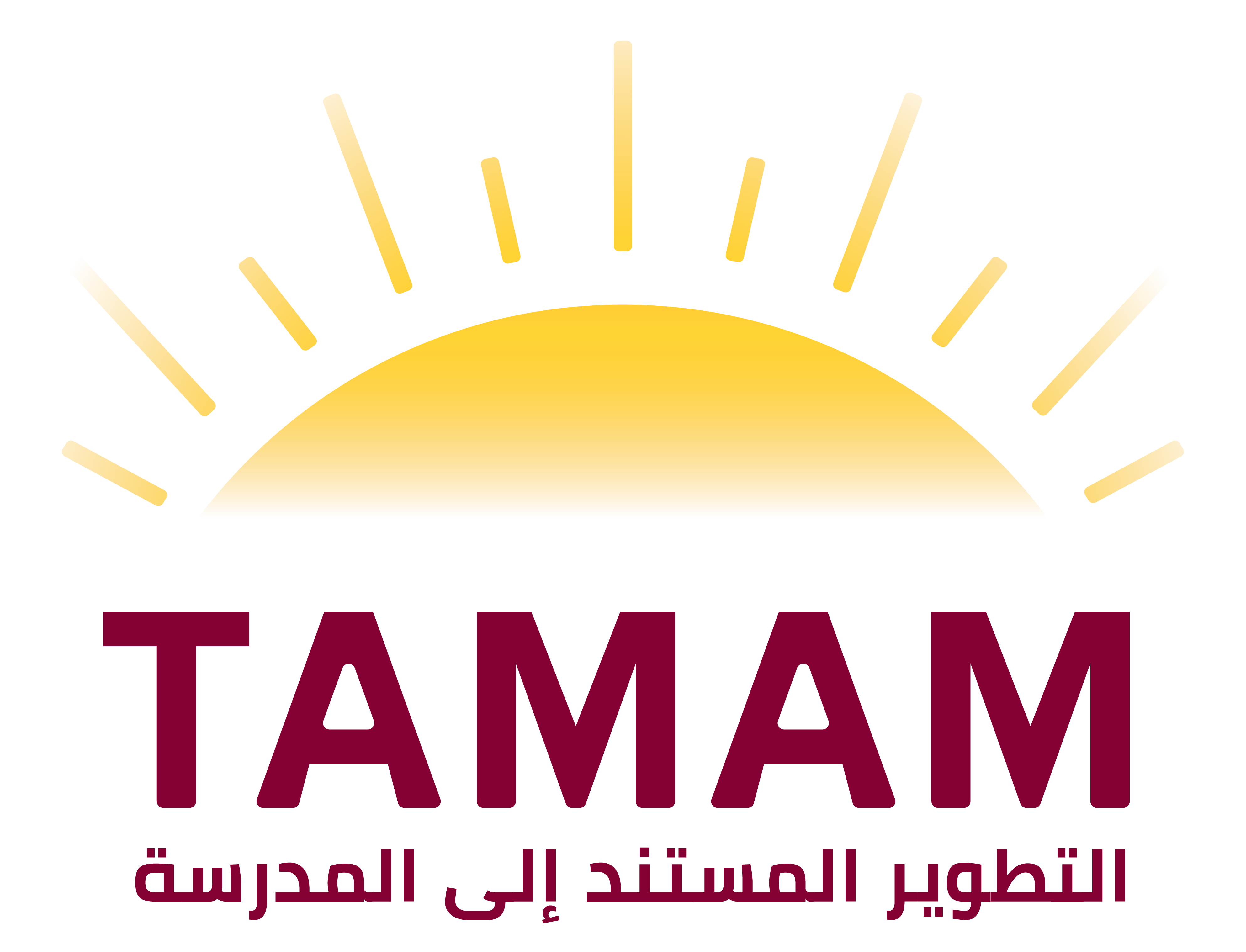Welcome to the core of TAMAM’s continuous research-based designs, where the outcomes are meticulously crafted programs playing a pivotal role in promoting school-based improvement. Our efforts go beyond innovative research; they shape the future of education. We dedicate ourselves to realizing the vision of an alternative school – a self-renewing school. Accordingly, our programs encompass family partnerships, student leadership, inter-school networking, and the amplification of educators’ roles to influence policy and decision-making. While these programs have made significant strides, they remain open for further experimentation and refinement. Here, we provide a concept note on each of these on-going research based-design initiatives.
Inter-School Collaborations for Impactful Improvement
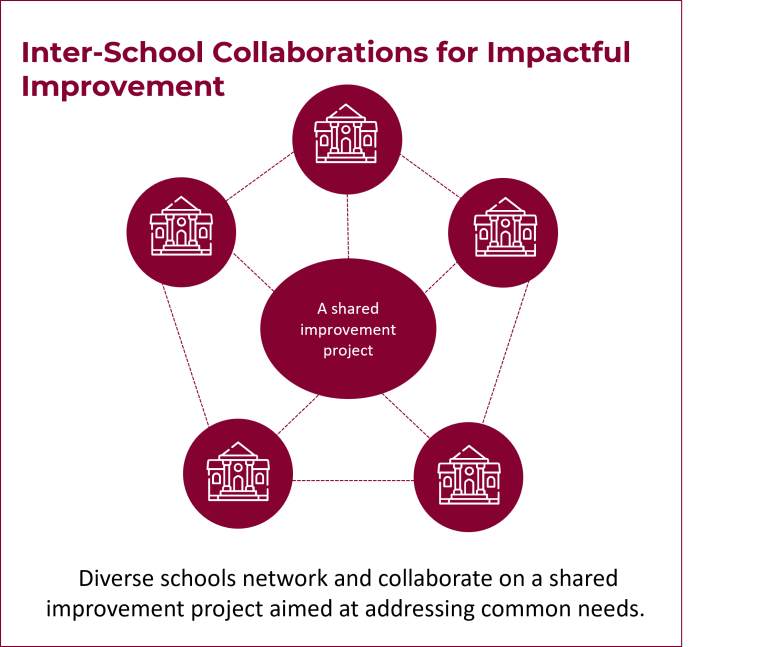
The steering team of the TAMAM project is actively involved in developing a grounded model designed to promote inter-school collaboration. This innovative model encourages and guides diverse schools to network and collaborate on a shared improvement project aimed at addressing common needs. Informed by international literature on Networked Improvement Communities (NICs), Professional Collaboration, and Inter-School Collaboration for School Improvement, the grounded model recognizes the significance of emotional and social aspects. It also highlights the distinct role played by university-based facilitators and experts in initiating and implementing inter-school collaboration. Moreover, the model acknowledges the pivotal role of internal advocates and champions within schools in driving this collaborative experience forward. Inter-school collaborations form the foundation of networking activities that can serve as enabling environments for broadening and deepening the impact of school-based reform. With the development of this research-based model, TAMAM is paving the way for a transformative approach to educational reform in the Arab world.
The design of TAMAM’s inter-school collaboration capacity building program is gradually emerging from the invaluable experience of the Jordan Hub Schools. The findings from the experiential implementation of this interschool collaboration experience served as the foundation for developing strategies that facilitate networking initiatives while building on success stories and addressing anticipated challenges.
The capacity building program to promote interschool collaborations for impactful school-based improvement is still in its early stages. It is a new evolving initiative that is being developed based on research, experimentation, and real-world feedback.
Family and Community School Partnership
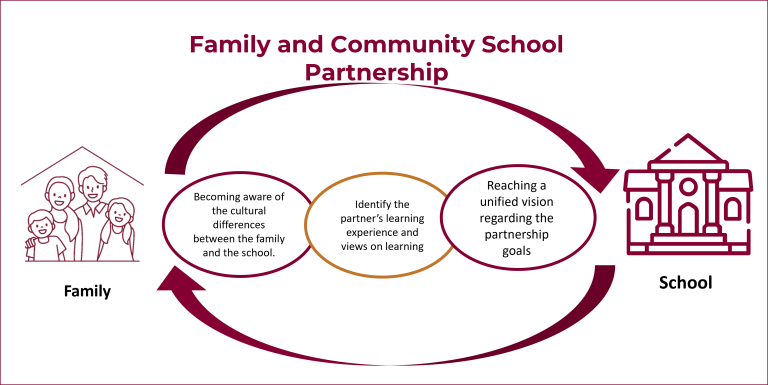
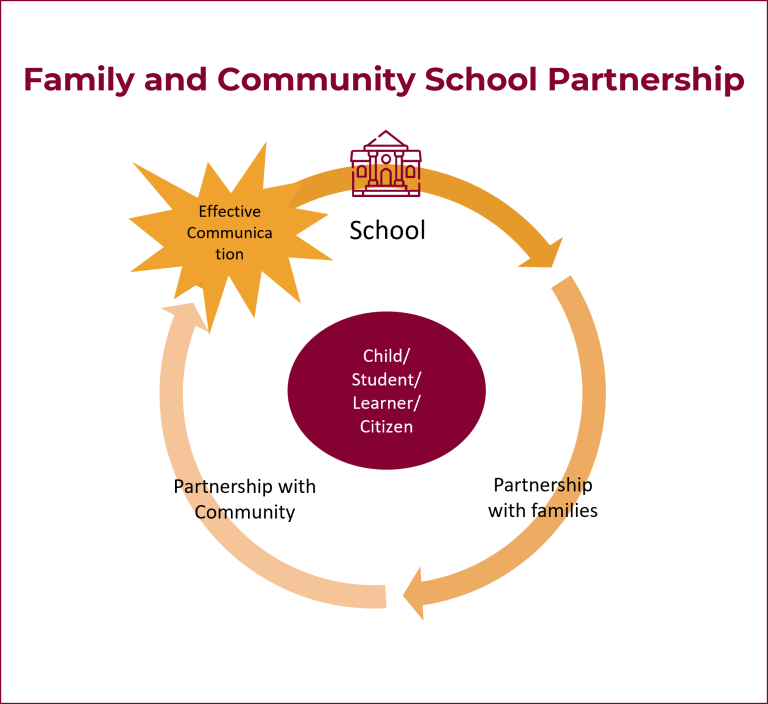
The “Family-School Partnership Model” and the “Local Community School Partnership Model” are evolving research-based design developed within TAMAM. These models aim to provide a grounded approach and to build the capacity of school teams leading school-based improvement for establishing partnerships with families and their community. Guided by a community-based socio-cultural framework, these designs conceptualize schools as open systems interacting with their external environment. They view schools as institutions capable of playing a key role in engaging various stakeholders, including educators, families, community leaders, and decision-makers, to collaboratively enhance the role of education in societal development.
Central to this approach is a call for educators leading school-based improvement to develop a profound understanding of the school’s environment, encompassing Families and the local community. The approach follows a step-by-step process to facilitate the formation of partnerships with families and the local community. This includes extensive data collection about students’ learning environments at home and the history of their families’ experiences with schools and schooling to inform the partnership-building process. It also encompasses culture and fostering effective communication between families and the school, facilitating the convergence of their cultures, and enhancing parental involvement in the educational process.
Similarly, the Local Community School Partnership Program involves the identification and understanding of key community stakeholders to plan collaborative initiatives for school improvement. A Community Support Team is formed to share and bolster the school’s strategic vision. This vision centers on transforming the school into a Community School that is grounded in its socio-cultural context.
The design for the capacity-building program to foster school-family partnerships and school-community partnerships are still under construction. Major components of the programs have been experientially implemented with school lead teams in several schools, resulting in the development of standardized activities, guidelines, and templates, including questionnaires.
Student Leadership
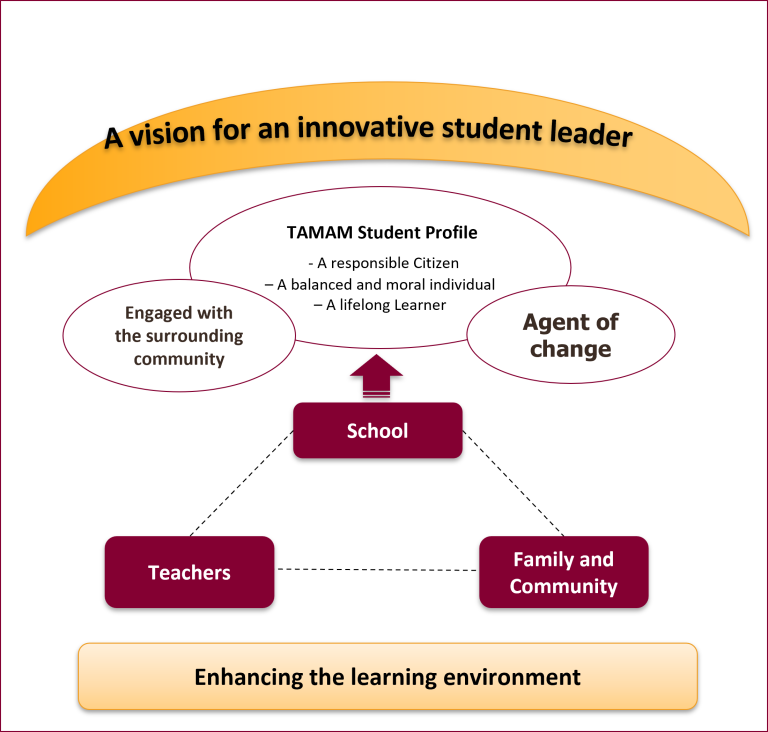
The Student Leadership Program, an emerging research-based design within TAMAM, targets both students and teachers with the goal of promoting student leadership. Collaborating with a team of experts, the PST is actively designing this program to empower students, by enhancing their voice, instilling responsibility, developing leadership skills, and fostering their engagement in school-based improvement. Guided by a conceptual framework informed by international literature and co-constructed with continuous input from school-level educators, the program includes workshops with follow-up sessions and project-based activities. It targets students aspiring to play leadership roles, coaching them to form a core leadership team at their school and lead school improvement initiatives within their community. The program also builds the coaching capacity of selected teachers to mentor the student leadership team, ensuring sustained support throughout their leadership development journey.
Policy Advocacy for school-based improvement
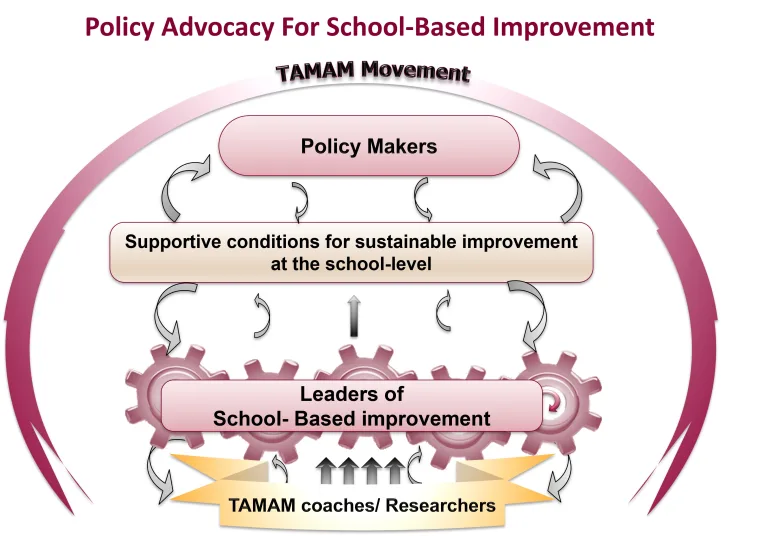
TAMAM vision for school reform centers on empowering school-based practitioners to lead school-based initiatives and mobilize human and structural resources needed to sustain the impact of the improvement initiatives while broadening their scope. The ultimate goal of the TAMAM movement is to create an institutional environment conducive to broad based leadership and continuous improvement of the education process.
To achieve these goals, there’s a crucial need to inform policymakers and shape policy. Leading school improvement occurs within a context shaped by socio-political factors that must be explored, understood, and engaged with for large-scale school-based reform to be implemented. Understanding policies and their development is essential so that school-level educational leaders can influence and shape them in a way that enhances their innovative capacity and ensures the sustainability of their improvement initiatives.
Sustainability occurs firstly at the level of educational institutions through the institutionalization of innovative practices. Secondly, it involves influencing existing policies to adapt them to newly established practices, enhancing their continuity, and expanding them to new settings.
TAMAM project Steering team is launching its efforts to develop strategies for scalability, policy advocacy and policy formulation. This involves delving into existing literature on scaling up initiatives, strategies for policy advocacy, and literature on social movements that have led to policy changes. Webinars and discussion forums will be conducted to gather insights grounded in the sociocultural context of the Arab region. The objective is to develop an initial model for policy advocacy that can guide TAMAM schools or its newly formed interschool collaboration teams and build their capacity for influencing the educational policy making process both at the level of their schools, nations and regions.
